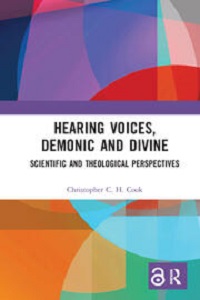How will these resources help you?
This list includes resources that explore the ineffable nature of God, religious experience and the value of via negativa (negative theology or apophaticism) as means of communicating the above. From the academic theory of William James to religious mystics and the twentieth-century falsification principle, sometimes the closest we can get to understanding God and our experience of God is through identifying what He is not. The scientific approach of falsification has been apparent in the apophatic descriptions of religious experience since the times of the Old Testament, and reflects the religious view that human minds are finite and cannot comprehend the infinite nature of God. The resources in this list provide insight into the nature of the approaches mentioned above and provide students with the opportunity to consider different perspectives. These resources would relate to GCSE RE specifications concerning beliefs about the nature of God, the distance between God and creation, the argument from religious experience, and higher level, such as EPQ and AS/A-level RE.
Why via negativa?

What is Apophaticism? Ways of talking about an ineffable God
by Michael Scott and Gabriel Citron, published by European Journal for Philosophy of Religion, 8:4, (2016)
This resource provides a helpful but succinct breakdown of what divine ineffability is and how various philosophers and religious thinkers have attempted to solve the problems that this creates with via negativa. It also explores the philosophical objection of reductionism, and the issue of whether via negativa can say anything at all about God while remaining consistent to its principle, that God is ineffable. This text could be split into sections and used as a means to develop greater understanding into the subsections mentioned above, or as a discussion point for students, from which to critique and consider counter arguments or alternatives.
The value of via negativa

Face to faith
by Mark Vernon, published by The Guardian, (2006)
This article provides students with a brief but accessible synoptic overview and link between religious experience, religious language, and the relevance of via negativa as a means of communicating one’s beliefs and experiences. The author refers to St Aquinas’ personal religious experience and highlights how even for this great scholar, at the end of it all words are not enough. The implications that this can therefore have on arguments for God’s existence are also explored. This text could serve as a flipped or independent learning resource or homework task for students to consider or respond to in advance of lessons on the subject.
Contemporary research

Hearing Voices, Demonic and Divine: Scientific and Theological Perspectives
by Christopher C.H. Cook, published by Routledge, (2018), 9780429423093
This book provides insight into contemporary research regarding the nature and perceived value of auditory religious experience. The question of ineffability and what can be said is explored in Chapter 2, and a great many examples are explored in detail in subsequent chapters, ranging from prominent examples students would be familiar with such as Moses, to modern-day experiences of ‘regular’ religious believers. Chapter 8 in particular considers the revelation that such experiences can provide, linking back to the question of ineffability and the nature of God. Sections of this text could be given to students to prompt discussion, to increase depth and understanding regarding these issues and examples, and to gain insight into the nature of contemporary academic research into such prevalent yet personal human experiences.
Visions of God

Story of God with Morgan Freeman: Visions of God
published by 2Scoop, (2016)
This documentary is a useful introduction to contemporary religious experiences and the power that they have in individuals’ lives. The episode considers various possible psychological, physiological and divine cause of such experiences, and provides different examples of how individuals understand and describe their own experiences, often in the via positiva (cataphatic) tradition rather than the via negativa. This resource could be used to compare specific examples of religious experience in terms of cause or language used in the description, or what it suggests such experiences can reveal about God, if anything.
Further materials
The Varieties of Religious Experience: A Study in Human Nature, published by Adelaide, (2009)
Find this ebook
Context of Religious Experience – P.I.N.T., published by Philosophy Dungeon, (2023)
Visit this website
Episode 37: Religious Language (Part I - The Via Negativa) by The Panpsycast Philosophy Podcast, (2018)
Listen to this podcast
Via Negativa: The Power of Knowing What Not to Do by Chris Meyer, published by The Mind Collection, (2023)
Read this article
Rebecca Neale is a teacher of Religious Studies with over a decade of experience, an Associate Fellow of the Higher Education Academy and has an MSc in Teaching and Learning from the University of Oxford. Rebecca has several years’ experience as a senior examiner, is currently a Principal Examiner for Religious Studies, and is a published author of Religious Studies resources and textbooks.
Text © Rebecca Neale, 2023
Text © Rebecca Neale, 2023



